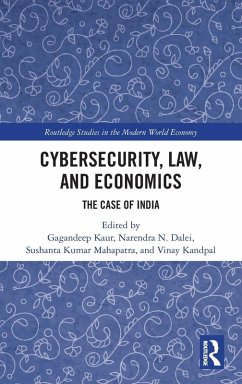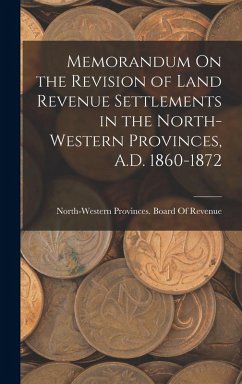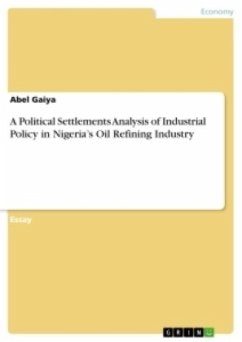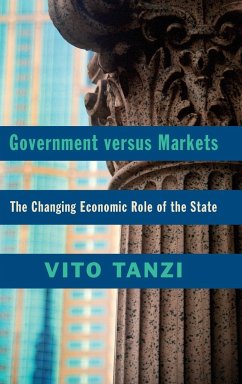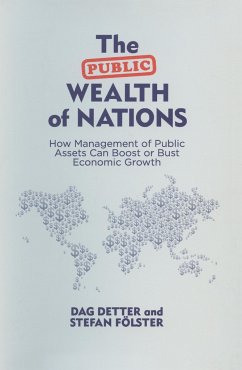Political Settlements and Development
Theory, Evidence, Implications
Versandkostenfrei!
Versandfertig in über 4 Wochen
Weitere Ausgaben:

PAYBACK Punkte
48 °P sammeln!




This book offers a comprehensive introduction to the field of political settlements study.
Tim Kelsall is a Senior Research Fellow at the Overseas Development Institute in London, a former co-Director of Research for the Effective States and Inclusive Development (ESID) research centre, and currently Political Settlements Research Director for the African Cities Research Consortium at the University of Manchester. He specialises in political anthropology and political economy analysis and has interests in governance, democracy, transitional justice, economic growth, education, and health. Previously, he taught politics and development at the Universities of Oxford and Newcastle and was an editor of the journal, African Affairs. Nicolai Schulz is a postdoctoral researcher at the Humboldt-Universität zu Berlin. His research triangulates quantitative with qualitative methods to study the political economy of development. Until recently, he worked as a research associate at the University of Manchester together with Tim Kelsall leading the effort to quantify political settlements through a large-scale expert survey. He received a PhD from LSE's Department of International Development for his thesis on the political economy of export bans and commodity processing in Africa, which won the second place in the 2020 UK Doctoral Researcher Awards. William D. Ferguson is the Gertrude B. Austin Professor of Economics at Grinnell College. His current research focuses on institutional political economy of development, with attention to collective-action problems as an analytical lens, using game-theoretic logic. He discussed the manuscript for his 2013 book with the late Elinor Ostrom, while visiting the IU Ostrom workshop. Prior research concerns theory of implicit bargaining power in employment relationships. His current classes include political economy, applied game theory, labour economics, and policy analysis. He is past Secretary-Treasurer of the Midwest Economics Association and chair and (key) founder of Grinnell's Policy Studies Concentration. Matthias vom Hau is an associate professor at the Institut Barcelona d'Estudis Internacionals (IBEI). A sociologist by training, he has a PhD from Brown University and previously held a postdoctoral fellowship at the University of Manchester. Matthias has published widely on how the intersection between ethnic politics and development. He has recently received a Consolidator Grant from the European Research Council (ERC) to study the supposedly negative relationship between ethnic diversity and public goods provision. Sam Hickey is Professor of Politics and Development at the Global Development Institute, University of Manchester. As Research Director of the Effective States and Inclusive Development (ESID) research centre (2011-2020), he worked collaboratively on the links between politics and development, with particular reference to state capacity, natural resource governance, social protection, education, and gender equity. ESID's multiple books and papers on these topics are available at www.effective-states.org. He is currently Deputy CEO for the African Cities Research Consortium at the University of Manchester. Brian Levy teaches at the School of Advanced International Studies, Johns Hopkins University; and was the founding Academic Director of the Nelson Mandela School of Public Governance, University of Cape Town. He worked at the World Bank from 1989 to 2012. He has published widely on governance and development, including Working with the Grain (OUP, 2014) and (as editor and lead author) The Politics and Governance of Basic Education: A Tale of Two South African Provinces (OUP, 2018).
Produktbeschreibung
- Verlag: Hurst & Co.
- Seitenzahl: 270
- Erscheinungstermin: 31. Oktober 2022
- Englisch
- Abmessung: 239mm x 164mm x 21mm
- Gewicht: 558g
- ISBN-13: 9780192848932
- ISBN-10: 0192848933
- Artikelnr.: 66149435
Herstellerkennzeichnung
Libri GmbH
Europaallee 1
36244 Bad Hersfeld
gpsr@libri.de
Für dieses Produkt wurde noch keine Bewertung abgegeben. Wir würden uns sehr freuen, wenn du die erste Bewertung schreibst!
Eine Bewertung schreiben
Eine Bewertung schreiben
Andere Kunden interessierten sich für




